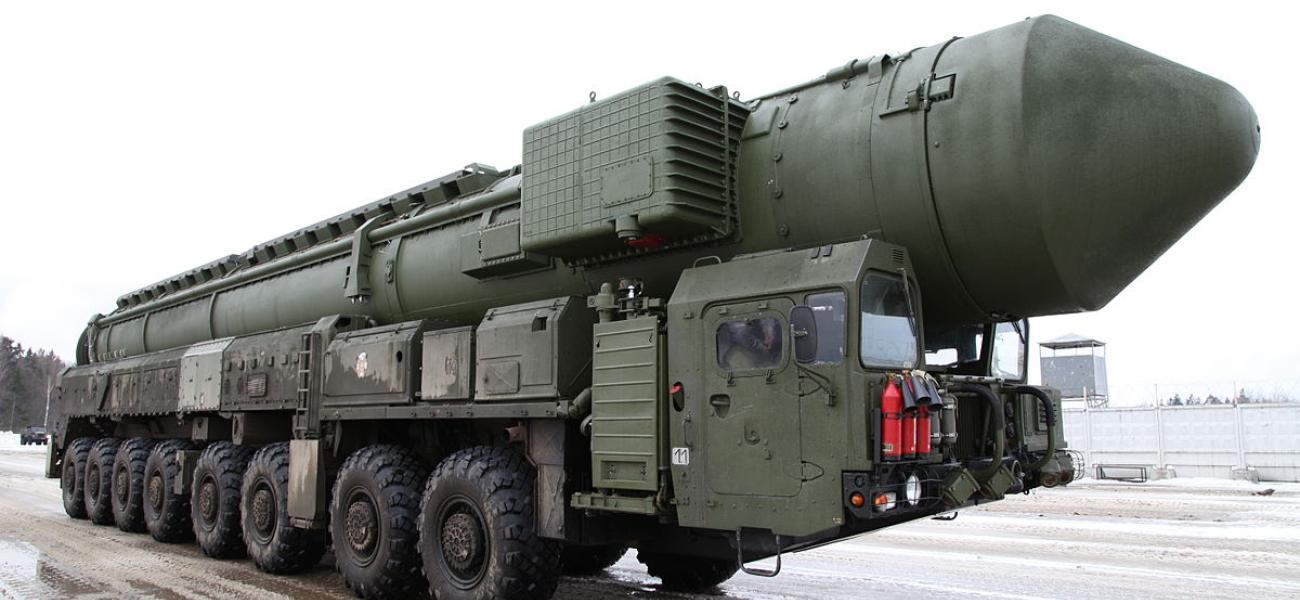
Should U.S. Missile Defenses Be a Part of Arms Control Negotiations With Russia?
This is a summary of an article originally published by The National Interest.
In his latest article for The National Interest, Steven Pifer urges the Biden administration to consider whether the benefits to United States and allied security of limiting all nuclear weapons, including non-strategic nuclear arms, would justify accepting some constraints on missile defense. The New START Treaty, the only remaining piece of bilateral arms control legislation between the U.S. and Russia, imposed a limit of no more than 1,550 deployed strategic warheads for each country. But both Presidents Obama and Trump "proposed that the next U.S.-Russia negotiation cover all their nuclear warheads," a proposition that Russia has been hesitant on.
Russia, meanwhile, has "expressed great concern about U.S. missile defenses," leading Pifer to argue that the Biden administration should seriously consider "some constraints on missile defense" in order to reach an agreement that limits "all nuclear weapons, including non-strategic nuclear arms."
For one, Pifer argues that should a new agreement not be reached, the U.S. could end up in a similar arms race with China as it did with the Soviet Union in the 1950s, where both countries focused on "spending more and more on strategic offense and defense--with no real gain in security." This situation was only concluded by the signing of the Anti-Ballistic Missile (ABM) Treaty. Additionally, Pifer points out that current American missile defense systems "do not appear that effective" and are quite expensive, "likely prohibitively so, especially in an era of tightening defense budgets." Pifer does concede, however, that constraining missile defense does have its drawbacks, including a reduced ability "to protect against a North Korean strategic ballistic missile attack."
In the end, Pifer argues that "the Biden administration may conclude that the missile defense programs it inherits from the Trump administration make sense and should not be altered or constrained by an agreement with Russia. Before reaching that conclusion, however, it should fully consider the potential risks to other parts of its security and arms control agenda."
Read the full article at The National Interest.
Steven Pifer
Steven Pifer is senior fellow and director of the Arms Control Initiative at The Brookings Institution in Washington, D.C.
Photo from Wikimedia Commons shared by a Creative Commons license.

